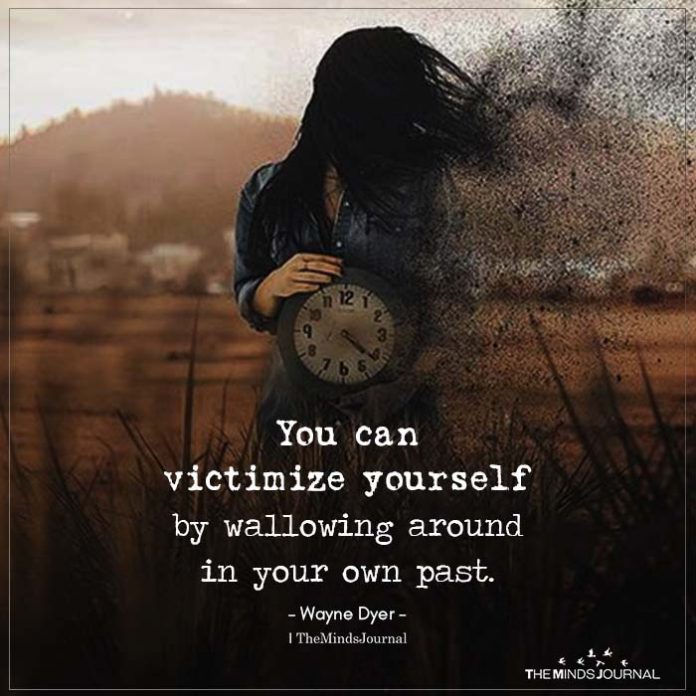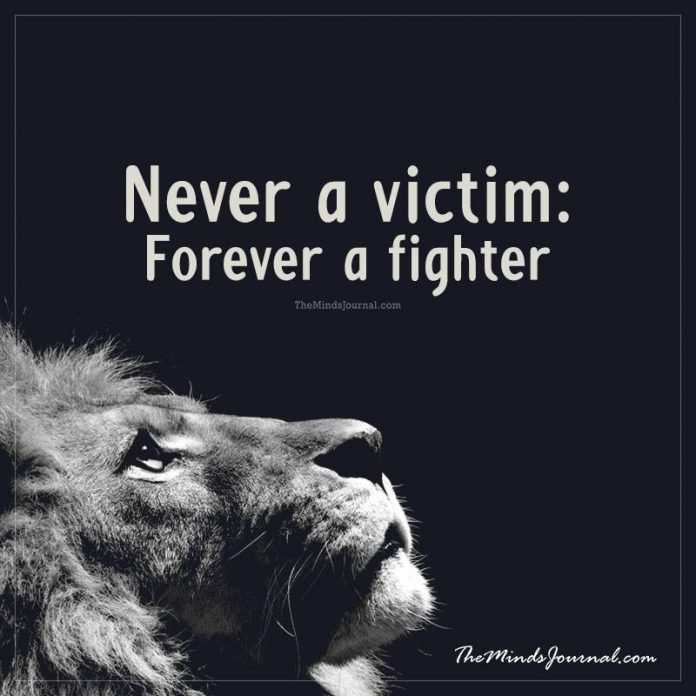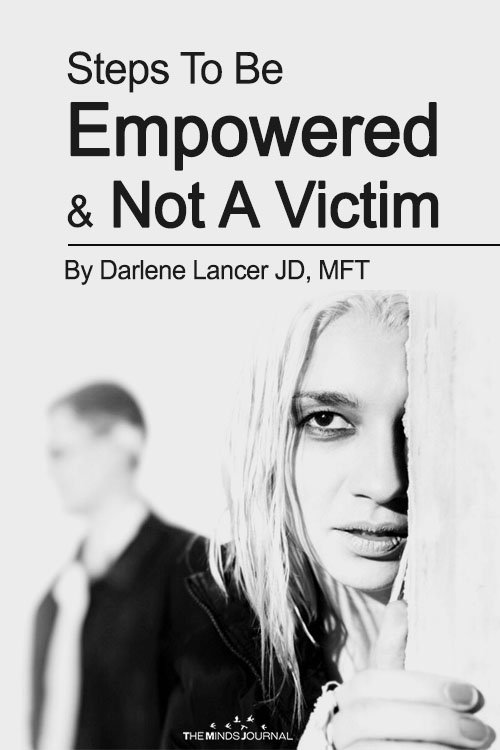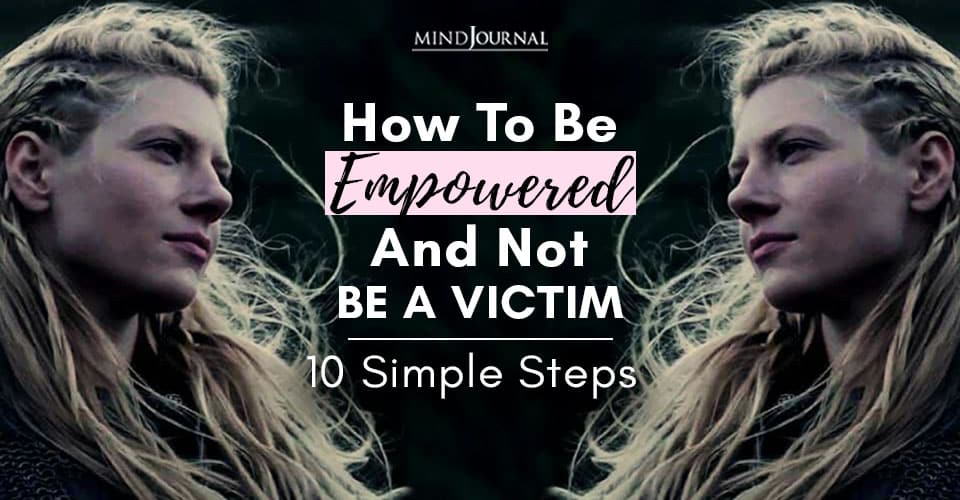Are you tired of feeling helpless and at the mercy of others? It’s time to take control and learn how to stop being a victim. Here’s how you can feel empowered!
In recovery circles, being a “victim” is frowned upon. Decades ago, when I heard people say they were no longer a victim, I had no idea what they meant.
Actually, a victim is an individual who has been fooled, hurt, or harmed, due to his or her own emotions or ignorance, an unfortunate event, or the actions of someone who deceived, cheated, injured, or killed him or her.
At the time, I really was a victim. I was in a relationship where I experienced systematic, emotional abuse, but due to my ignorance, I didn’t know it.
Many people, particular codependents, are in relationships with addicts or abusers, including relationships with partners or parents who have the mental illness, such as a bipolar mood disorder or borderline, sociopathic, or narcissistic personality disorders.
They suffer from frequent and often malicious verbal and sometimes physical attacks, betrayal, manipulation, and other forms of abuse that can alter their perception, self-image, and ability to protect themselves.
Many victims in abusive relationships don’t recognize it as such, because it’s reminiscent of the shame, neglect, or another mistreatment they experienced in their families of origin. As children they were unprotected victims; hence, they didn’t develop adequate self-worth or learn how to stand up to abuse.

There’s a saying in Al-Anon Family Groups: “There are no victims, only volunteers” – meaning that when you tolerate unacceptable behavior, you volunteer for it.
Learning that I was being verbally abused was enlightening. Before that, I brushed off painful epithets and criticisms by rationalizing and minimizing them. This is called denial.
Related: The 7 Point Checklist A Narcissist Will Refer To When Looking For A Victim
Once I faced the truth in an assertiveness class, I found the words and courage to name the abuse and say how I felt about it. To my surprise, the verbal abuse stopped, with only an occasional slip-up.
I learned to disengage and walk away from potential attacks before they escalated. I was becoming empowered, and no longer behaving like a victim. This process took time.
There are other forms of “playing the victim,” such as blaming your unhappiness on your job or inaction on physical or emotional circumstances.
The common denominator is putting the responsibility for your circumstances outside of yourself or beyond your power. Someone else or some circumstance is preventing you from achieving what you want.
Learning The Role of Victim And How To Be Empowered
Contrary to the Al-Anon slogan, being a victim isn’t a role anyone wants or consciously chooses. No one enjoys feeling powerless and hopeless. There are unconscious forces at work that usually are determined by beliefs learned early in life.
For example, if we have a shamed-based self-concept that we’re a failure or unworthy of happiness, we’ll likely prevent ourselves from achieving success or happiness, no matter how hard we try.
These beliefs are usually learned growing up in a dysfunctional family. Abusive relationships are closed systems. Often abusers try to exercise exclusive control over their partner with direct threats or through subtle manipulation, such as guilt or undermining, in order to keep their partner from talking to others or receiving outside information and help.
Parents do this, too, to hide their shame and keep up appearances, using overt threats of punishment if the abuse is recounted to others, or with sayings, like, “We don’t share our dirty laundry,” and “Blood is thicker than water.”
Victims may not know that there’s help or how to access it and may fear for their life or loved ones if it’s reported. Using the children to blackmail a spouse is not uncommon.
Related: 8 Signs You Are The Victim Of An Abusive “Hoovering” Narcissist
How To Stop Being A Victim And Becoming A Victor
Becoming empowered and leaving victimhood behind is difficult and extremely hard to do on our own.
We’re all too used to our own perspective and repetitive thought patterns that go unchallenged until we talk to someone with a different, healthier perspective. For instance, I felt trapped when I was verbally abused while riding in the car.
Until my Al-Anon sponsor made the suggestion, I’d never considered getting out of the car. When I did, I couldn’t believe the immediate, exhilarating, empowering, and liberating high I felt.

Had I not discussed the problem with her beforehand, that action never would have occurred to me. I started driving separately in my own car to events. This way, I could leave when I wanted, avoid abusive conversations, and not worry about my partner’s sobriety.
By learning to speak up and set boundaries, I was becoming empowered and was no longer a victim to someone else’s mood or behavior.
Leaving Victimhood In 10 Steps And Build Self-Empowerment
Whether you really are a victim in an abusive relationship or see yourself as one in your life, the solution is the same. These are suggested steps to achieving this freedom, not necessarily in the following order:
1. Learn all you can about your situation. Information is power. Read my blogs on abuse and books on codependency.
2. Get support from a therapist, experienced life coach, and/or a 12-Step Program.
3. Objectively observe others’ undesirable behaviour and your reaction. Does your reaction make you feel better or stop unwanted behavior? Do you also do some of the objectionable behaviour? Experiment with other responses, including none, and see the result.
4. Are you aligned with your goals and values? What steps do you need to take to be in alignment?
5. Start meeting your unmet needs.
Related: Why Family Scapegoats Become Lifelong Victims.
6. What beliefs hinder you from accomplishing your goals. For shame-based beliefs, follow the steps in 10 Steps to Self-Esteem: The Ultimate Guide to Stop Self-Criticism and Conquering Shame and Codependency: 8 Steps to Freeing the True You.
7. Take responsibility for your choices. What feels different when you say “I want to,” instead of, “I have to,” and, “I don’t want to,” instead of, “I can’t?” Taking responsibility helps you accept your choices and initiates the opportunity for change.
8. Take action. Acquire the necessary skills and resources to achieve your goals. For example, if you’ve been nagging your partner to repair or clean something and s/he continually refuses to meet your request, either get the skills to do it yourself or hire someone who will.
If lack of training or education stops you from pursuing a career you want, sign up for the requisite classes–even if it will take several years.
9. Learn to be assertive. This empowers you to be authentic, set limits, and to build your self-esteem. Read How to Speak Your Mind – Become Assertive and Set Limits and watch How to Be Assertive.
10. Don’t blame or be defensive. Take responsibility for your happiness, unhappiness, and your part in disagreements and problems in your relationship, whether or not your partner does the same. Make amends for your contribution.
I hope these steps to be empowered help you in your endeavors.
Please share this post with anyone who you may think will find it valuable and helpful.
©Darlene Lancer 2017
Leaving victimhood is challenging, but cultivating self-confidence can help you achieve it.
Written by Darlene Lancer JD, MFT
Originally appeared on WhatIsCodependency.com












Leave a Reply